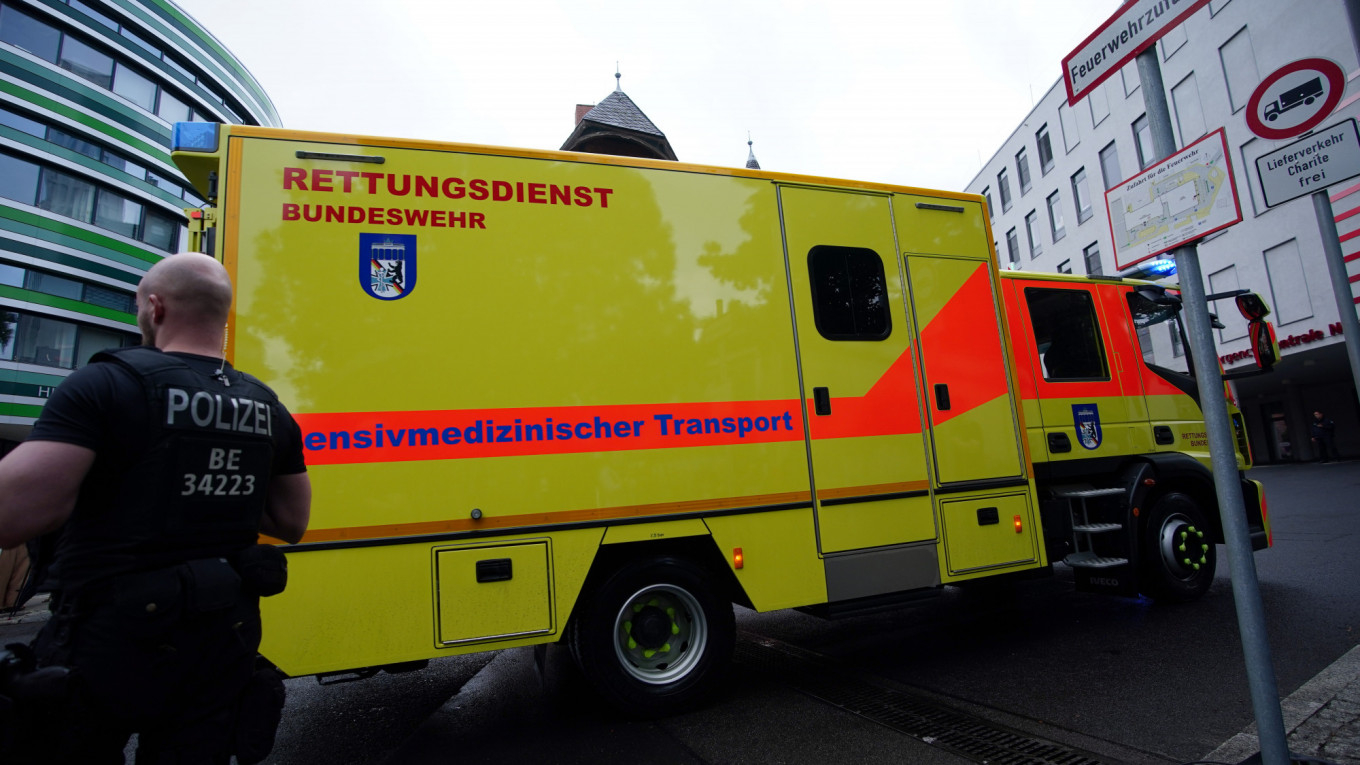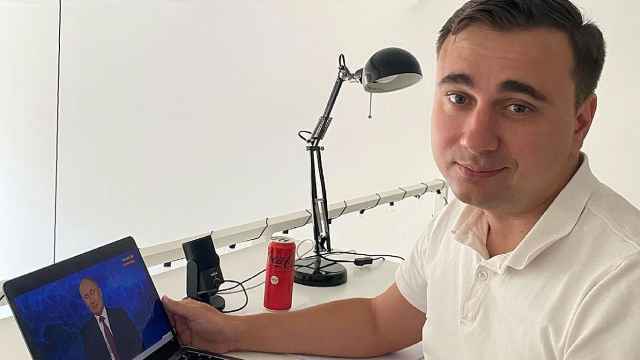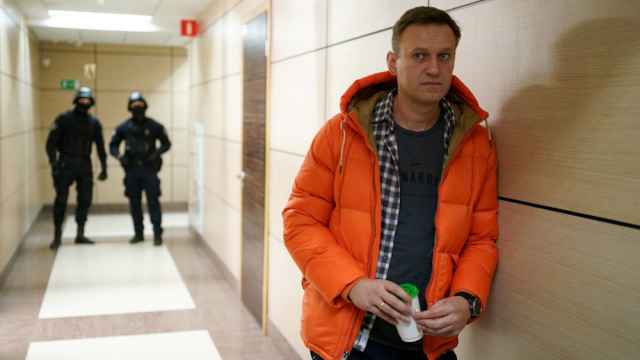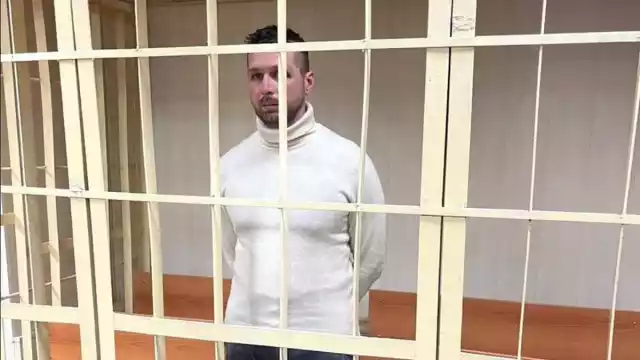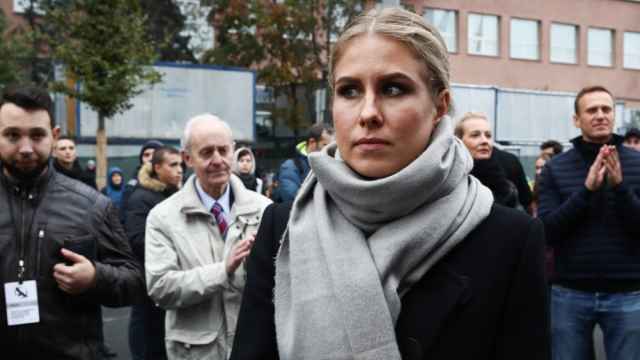Russian opposition leader Alexei Navalny has arrived in Germany in a stable condition for treatment for a suspected poisoning. He became violently ill on a flight to Moscow on Thursday morning and fell into a coma. His team believes a toxic substance was added to a cup of tea he drank at an airport cafe.
Here are the latest updates:
— The air ambulance transporting Navalny to Germany for treatment has landed, with the opposition leader in a stable condition according to Jaka Bizilj, the head of the Cinema for Peace NGO that organized the flight.
— An air ambulance transporting Navalny to Germany for treatment has taken off from Omsk.
— Omsk doctors have agreed to Navalny's evacuation to a hospital in Berlin as his condition has stabilized, the hospital's deputy chief doctor said. The plane is expected to depart in a few hours.
— "There is a chance that Navalny will now be able to be transported. It is a pity that it took the doctors so long to make this decision," his spokeswoman tweeted.
— Navalny's aides have urged the European Court of Human Rights to ask the Russian government to allow his transfer to Germany, the court said.
— The German doctors who examined Navalny have determined it's safe to transfer him to a German hospital by plane. Doctors in Omsk, meanwhile, have announced that he will stay there "until his condition stabilizes."
— Police say they have identified an industrial chemical substance in Navalny's body. The substance, 2-ethylhexyl diphenyl phosphate, could have entered his body through contact with a plastic cup, the Omsk regional police department told Interfax. The chemical is mainly used in plastic packaging for food.
— German medics who have arrived in Omsk on a plane sent to evacuate Navalny have been allowed to see the activist in his hospital room, his chief of staff Leonid Volkov said at a press conference in Berlin. Members of Navalny's team are being barred from speaking to the German medics. "Obviously [the authorities] are trying to hide something from us," Navalnaya says.
— Navalny's wife Yulia Navalnaya has written a direct appeal to President Vladimir Putin to allow her husband's evacuation to a hospital in Germany.
— The German government said it is in contact with Moscow to find a solution to the "humanitarian emergency" of Navalny's hospitalization.
— The Kremlin said the decision not to evacuate Navalny is "purely medical."
— Navalny may have experienced a steep drop in blood sugar during his flight that caused him to lose consciousness, the Omsk hospital's chief doctor said. He added that doctors have refused his evacuation by plane because "this [metabolic] instability can increase during takeoff and landing."
— The hospital's deputy chief doctor said "no trace" of poison has been found in Navalny's system during tests so far, contradicting previous claims by police.
— Doctors have five working diagnoses for Navalny's condition, the head doctor at the Omsk Emergency Hospital told reporters without naming any of the potential diagnoses.
— Head of Navalny’s Anti-Corruption Foundation Ivan Zhdanov told journalists that police reported that a “poison” was found in Navalny’s system that is “dangerous to those around him,” but that law enforcement wouldn’t name the substance.
— The plane flying from Germany to Russia to pick up Navalny will arrive in an hour but doctors aren’t allowing him to be transported because his condition is unstable, his spokeswoman Kira Yarmysh tweeted early Friday morning, calling the refusal an “attempt on his life."
Thursday
— Navalny's lab results show no signs of heart attack, stroke or brain damage, the Omsk hospital's deputy chief doctor told the RBC news website.
— A plane with medical equipment will be dispatched Thursday night to transport Navalny to a hospital in Berlin, Cinema for Peace foundation head Bizilj said. The German NGO, which previously airlifted Pussy Riot member Pyotr Verzilov to Germany in 2018 after he suffered a suspected poisoning, is still waiting on approval from authorities, Bizilj said.
— French President Emmanuel Macron and German Chancellor Angela Merkel at a joint press conference said both France and Germany are ready to receive Navalny for medical treatment. Macron also offered France's help in terms of providing asylum or protection.
— A German NGO has readied a plane with medical equipment to bring Navalny to Berlin for treatment. The head of the Cinema For Peace foundation, Jaka Bizilj, told German media that they are currently awaiting approval from the authorities.
— Navalnaya has been allowed to visit her husband, Yarmysh said.
— Doctors are rejecting requests to transfer Navalny to another hospital, the head of Navalny's Anti-Corruption Foundation Ivan Zhdanov said.
— Navalny's personal doctor, Anastasiya Vasilyeva, said she has asked for official help in obtaining his medical documents and allowing him to be transferred to a leading toxicology center in Europe following the Kremlin's offer of assistance.
— Doctors are refusing to let Navalny's wife into his hospital room to see him, his spokeswoman Kira Yarmysh tweeted. Yulia Navalnaya was allegedly told she needed to show her marriage certificate to prove to the hospital that she's his wife.
— Navalny's condition has stabilized, the hospital's deputy chief doctor said without specifying whether he's still in a coma.
— The Kremlin has wished Navalny a speedy recovery and said it would consider any requests to take him out of the country for treatment abroad.
— Speaking to reporters, Kremlin spokesman Dmitry Peskov urged people not to speculate about the causes of Navalny's illness and to wait for test results.
— The doctor overseeing Navalny's treatment told reporters that medics were doing everything to save his life.
— Navalny’s personal doctor wrote on Twitter that the hospital was refusing to communicate with her, but that Navalny’s pupils were showing reactions. She said she was on her way to Omsk.
— The state-run TASS news agency cited a law enforcement official as saying that so far investigators are not considering that Navalny was poisoned intentionally.
— Navalny was taken to the hospital where he was connected to a ventilator. He is in a coma.
— The manager of the airport cafe where Navalny was photographed drinking a cup of tea before his flight told Interfax that he would be launching an investigation.
— Navalny's spokeswoman wrote on Twitter that Navalny was apparently poisoned with something mixed in his tea, as it was the only thing he drank that morning.
— Video on social media showed him being stretchered off the plane in obvious pain.
— Navalny fell ill during a flight from the Siberian city of Tomsk to Moscow early Thursday morning, forcing the plane to make an emergency landing in the city of Omsk.
AFP contributed reporting.
A Message from The Moscow Times:
Dear readers,
We are facing unprecedented challenges. Russia's Prosecutor General's Office has designated The Moscow Times as an "undesirable" organization, criminalizing our work and putting our staff at risk of prosecution. This follows our earlier unjust labeling as a "foreign agent."
These actions are direct attempts to silence independent journalism in Russia. The authorities claim our work "discredits the decisions of the Russian leadership." We see things differently: we strive to provide accurate, unbiased reporting on Russia.
We, the journalists of The Moscow Times, refuse to be silenced. But to continue our work, we need your help.
Your support, no matter how small, makes a world of difference. If you can, please support us monthly starting from just $2. It's quick to set up, and every contribution makes a significant impact.
By supporting The Moscow Times, you're defending open, independent journalism in the face of repression. Thank you for standing with us.
Remind me later.


